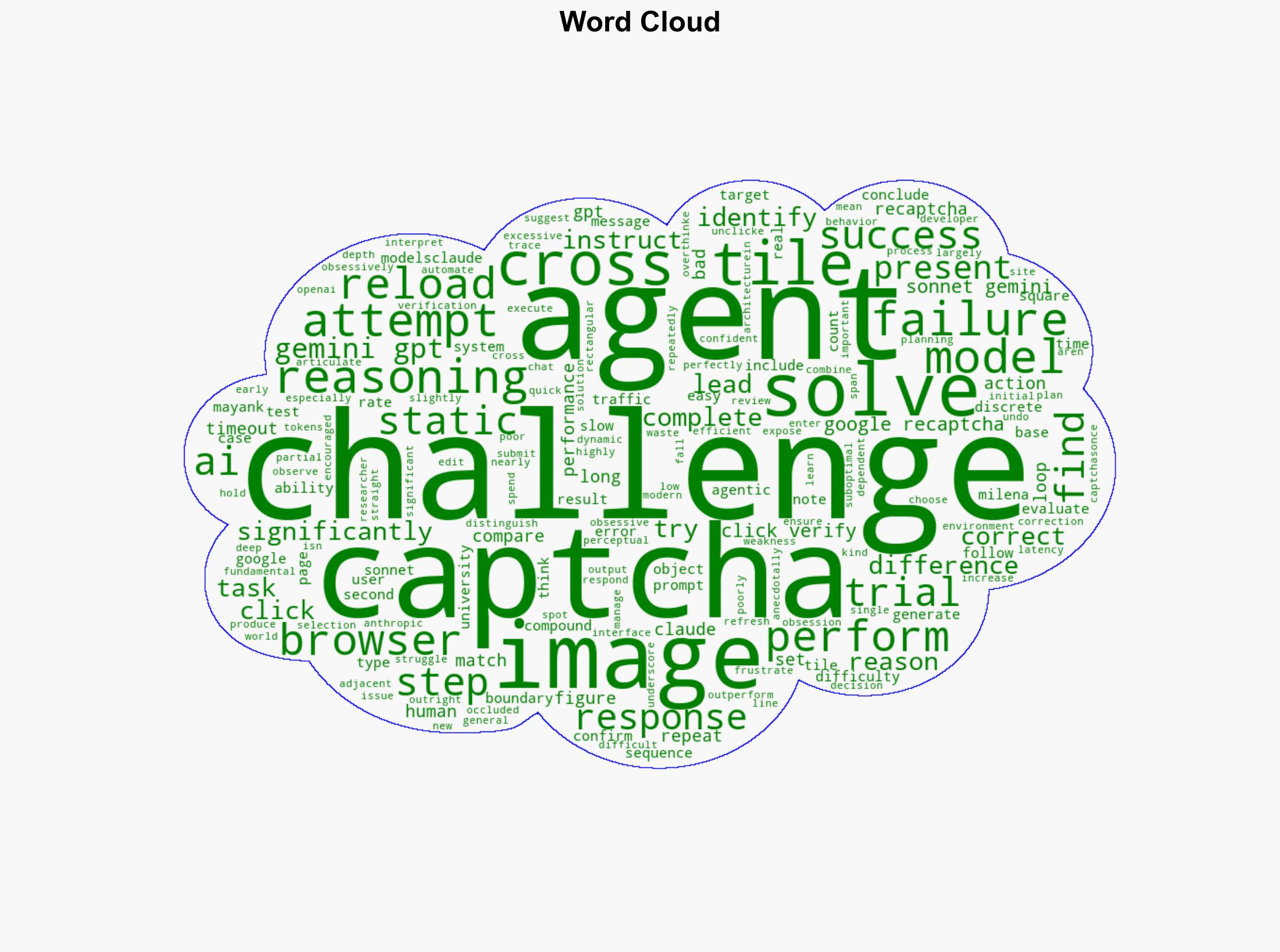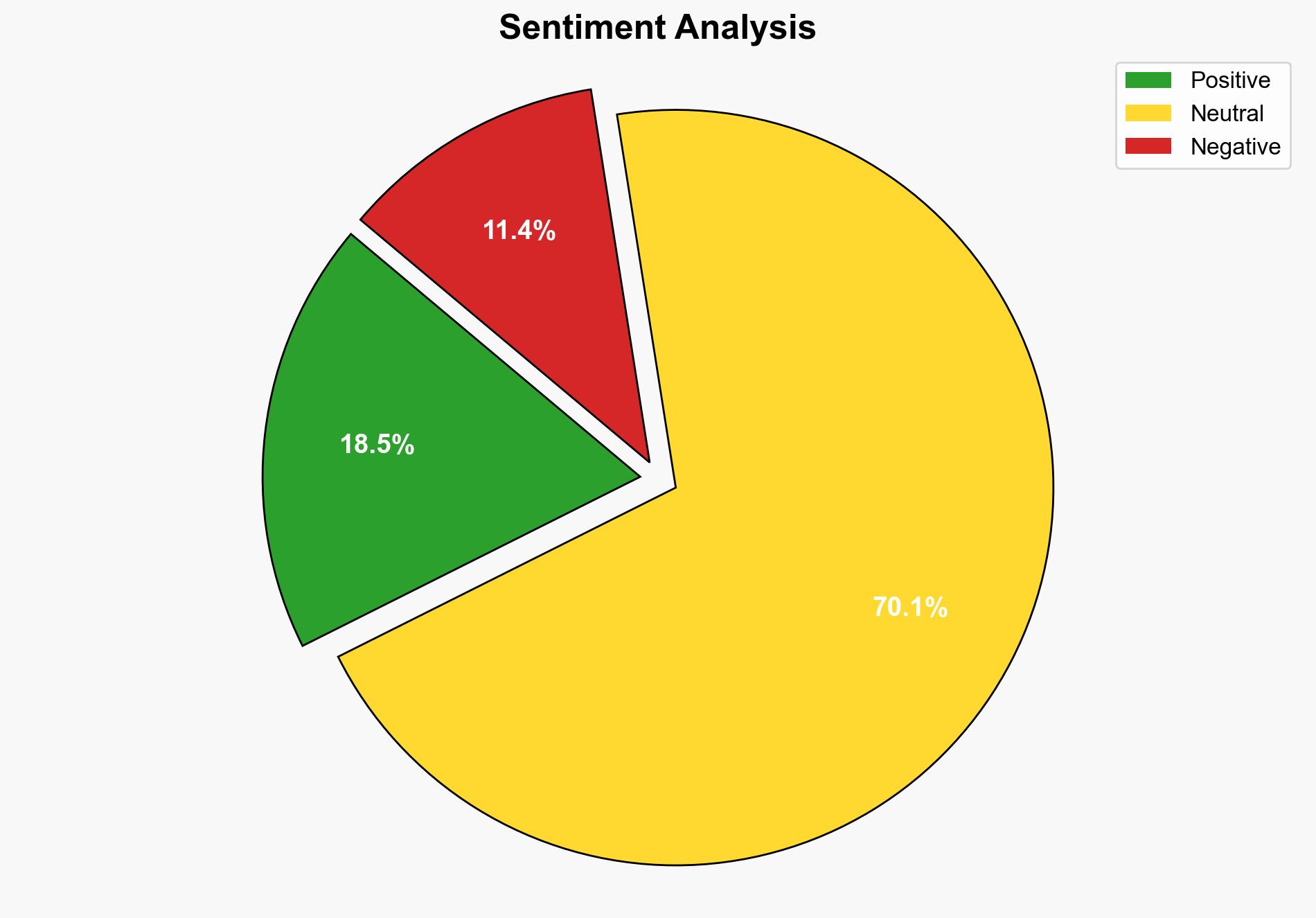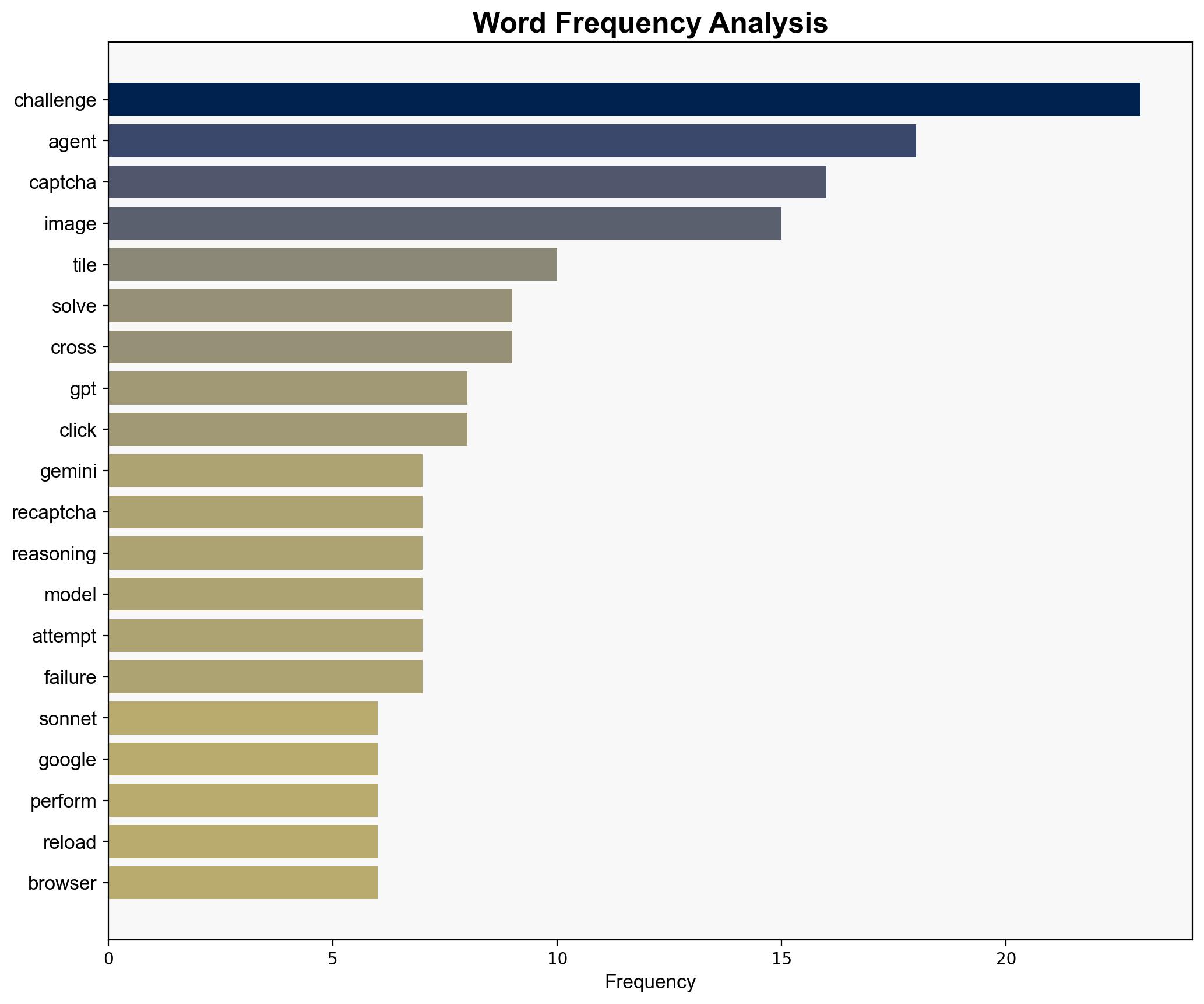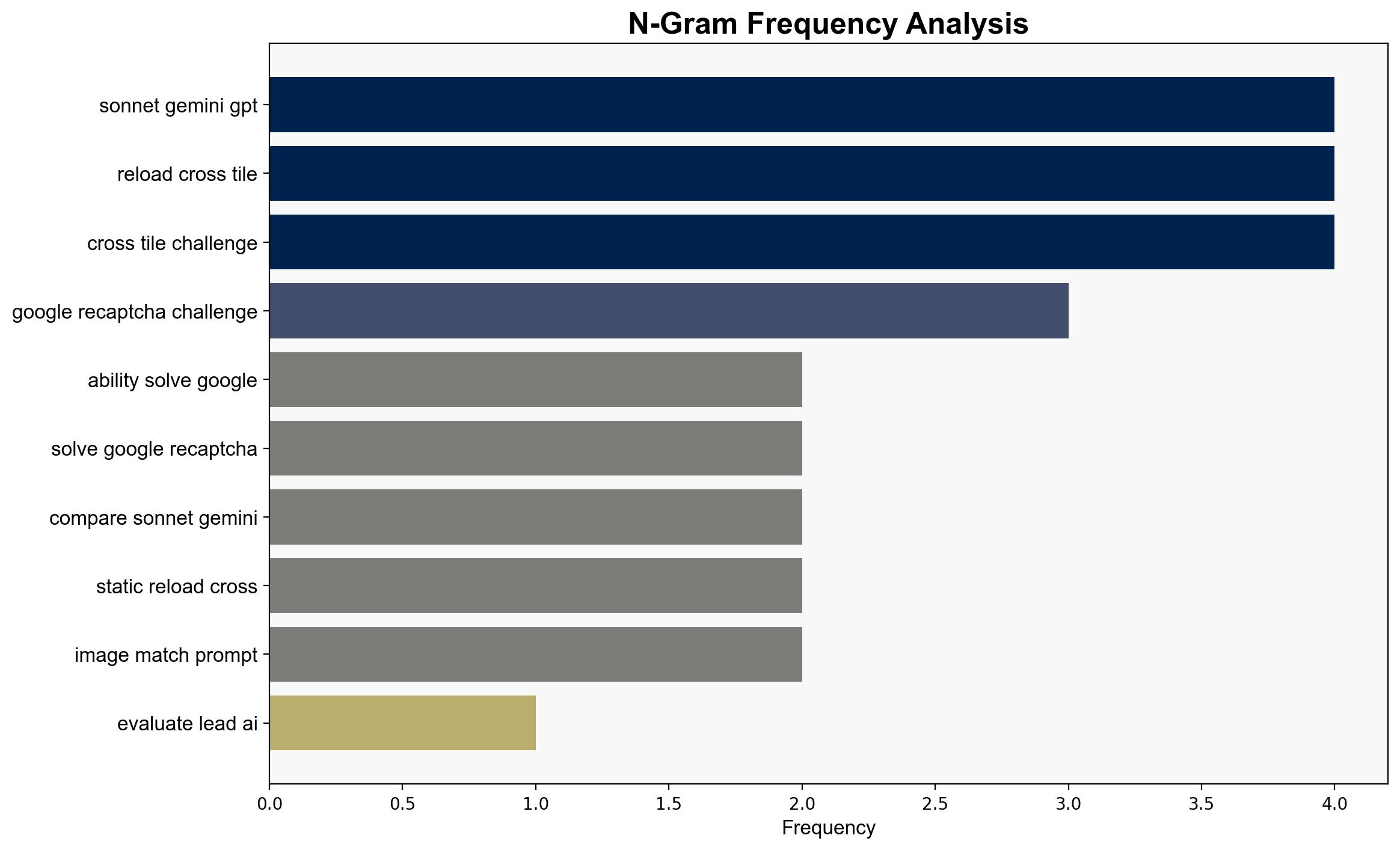Benchmarking leading AI agents against Google reCAPTCHA v2 – Roundtable.ai
Published on: 2025-11-10
Intelligence Report: Benchmarking leading AI agents against Google reCAPTCHA v2 – Roundtable.ai
1. BLUF (Bottom Line Up Front)
The analysis suggests that current AI models, including Claude, Sonnet, Gemini, and GPT, exhibit significant limitations in solving Google reCAPTCHA v2 challenges, particularly in dynamic scenarios. The hypothesis that these models struggle due to inherent perceptual and reasoning limitations is better supported. Confidence level: Moderate. Recommended action: Enhance AI perceptual capabilities and reasoning efficiency to improve performance in real-world dynamic tasks.
2. Competing Hypotheses
1. **Hypothesis 1**: AI models underperform in reCAPTCHA challenges due to inherent perceptual and reasoning limitations, particularly in dynamic and cross-tile scenarios.
2. **Hypothesis 2**: The underperformance is primarily due to the specific design of reCAPTCHA challenges, which are intentionally difficult for AI to solve, rather than inherent model limitations.
Using ACH 2.0, Hypothesis 1 is better supported as the models show consistent difficulty with dynamic challenges, indicating a fundamental issue with perceptual and reasoning capabilities, rather than just challenge design.
3. Key Assumptions and Red Flags
– **Assumptions**: It is assumed that the reCAPTCHA challenges are a valid test of AI perceptual and reasoning capabilities. Another assumption is that the AI models are optimized for such tasks.
– **Red Flags**: The potential bias in evaluating AI performance based on a single type of challenge. Lack of data on AI performance in other real-world scenarios.
– **Blind Spots**: The analysis does not account for potential improvements in AI models or changes in reCAPTCHA design.
4. Implications and Strategic Risks
– **Economic**: AI’s inability to handle dynamic tasks could limit its application in sectors requiring real-time decision-making.
– **Cybersecurity**: Weaknesses in AI’s perceptual abilities could be exploited in cybersecurity contexts, where quick and accurate identification is critical.
– **Geopolitical**: Nations relying on AI for critical infrastructure may face vulnerabilities if AI cannot adapt to dynamic challenges.
– **Psychological**: User frustration with AI’s slow reasoning and decision-making could erode trust in AI systems.
5. Recommendations and Outlook
- Invest in research to enhance AI’s perceptual and reasoning capabilities, focusing on dynamic and real-time tasks.
- Develop alternative benchmarking tests that better reflect real-world challenges.
- Scenario Projections:
- Best: AI models improve, leading to enhanced performance in dynamic tasks.
- Worst: AI models remain limited, leading to stagnation in AI application development.
- Most Likely: Gradual improvements in AI capabilities with ongoing research and development.
6. Key Individuals and Entities
– Claude
– Sonnet
– Gemini
– GPT
– Google reCAPTCHA
7. Thematic Tags
national security threats, cybersecurity, AI development, technological innovation





